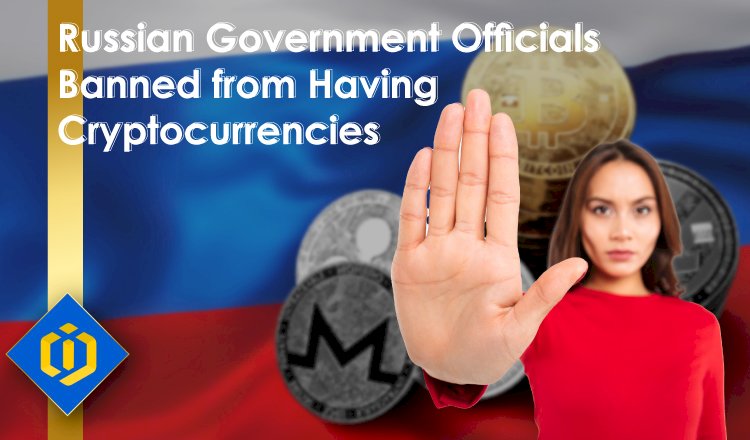Russian Government Officials Banned to Own Crypto
The government of Russia has plans to begin the process of banning the officials of government from having digital currencies. Read this article to find out more.

Russian Government Officials Are Being Banned to Have Cryptocurrencies
Russia's new law of digital assets forced all Russian officials to declare their digital assets and banned them from keeping their digital properties.
Russia's latest cryptocurrency law was passed in January, but left some ambiguities about how local authorities could deal with their digital assets.
At least two other laws that require all Russian government officials to disclose or even sell their cryptocurrencies by 2021 have already been passed.
On December 10, 2020, Russian President Vladimir Putin signed a decree requiring some government officials to declare their cryptocurrency assets by June 30. The decision was part of the Act on Digital Financial Assets (DFA), which came into force on January 1st.
Based on this decree, the Russian authorities or people who want governmental positions should declare their digital assets as well as their wives and children.
But at the same time, there is another law that forbids a certain number of Russian government officials from owning any cryptocurrencies in order to take anti-corruption steps.
On December 28, 2020, the Russian Ministry of Labor and Social Protection issued a statement saying that some Russian government officials, regardless of the country of issuance, should sell all their digital assets and cryptocurrencies by April 1.
Officials restricted by this legislation are those referred to in the first part of Article 2 of the Federal Law of Russia that approved on 7 May 2013, who do not have the right to deposit their property abroad and the right to use international financial expressions.
The list includes heads and deputies of government departments, members of the board of directors of the Central Bank of Russia, managers of state-owned companies, heads of district administrations and some other officials; Other authorities do not have this restriction, but they must declare their digital assets too.
Russia still continues to pass laws for cryptocurrencies, but it is not clear how it will be technically monitored.
"There is still no law on the circulation of cryptocurrency" said Artem Grigoriev, head of research at the Cryptocurrency and Blockchain Association of Russia. The authors of this law probably have their own opinion on the implementation of these regulations. It will be clear in practice.
Maria Stankevich, a member of the Blockchain and Cryptocurrency Technology Committee, also questioned the technical and legal feasibility of enforcing these regulations.

 cintjournal admin
cintjournal admin 


















